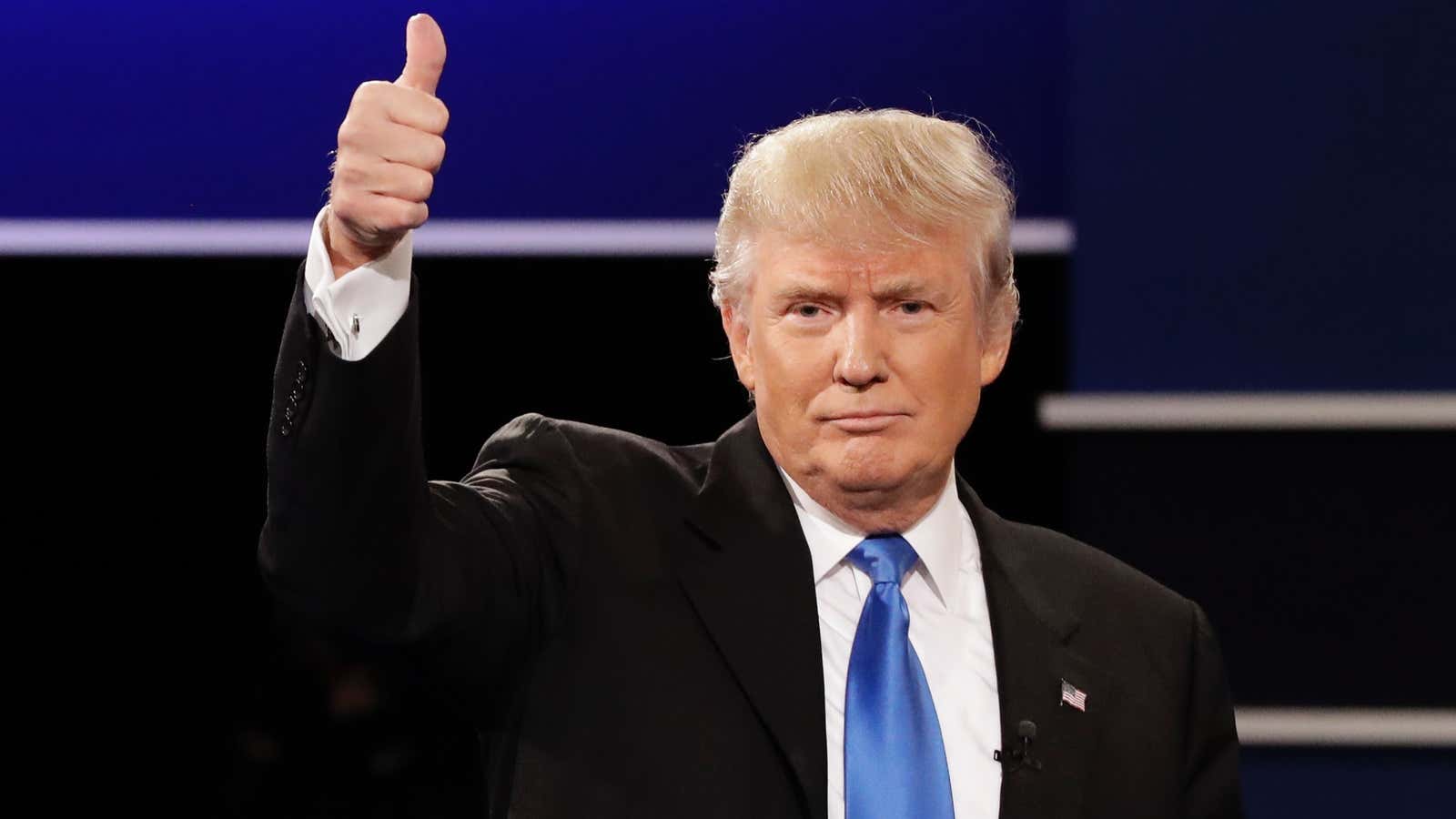Donald Trump’s dismal analysis of the trade deals that the US has struck with the rest of the world held up better than Hillary Clinton’s justifications at the first presidential debate on Sept. 26.
The Republican candidate started with a clear demand to rework existing trade deals. “We have to renegotiate our trade deals, and we have to stop these countries from stealing our companies and our jobs,” Trump said. It’s no secret that Trump wants to keep the Mexicans out, but his taking issue with the “defective agreement” when it comes to trade with Mexico has some merit: Mexico’s VAT tax system means that when America sells into Mexico, there’s a tax—” automatic, 16 percent, approximately.” However, when Mexico sells into the US, there’s no tax. (Here Trump gets the sizes of the tariffs wrong, but he still landed the point in the heat of the debate.)
Trump argued that the cheap business opportunities in Mexico and other countries are luring American business away from American soil. He attacked Ford, claiming the Dearborn automaker was shipping jobs across the border to Mexico. He believes that the way to stop job loss is to restrict US businesses from importing foreign-made products, tax-free: “If you think you’re going to make your air conditioners or your cars or your cookies or whatever you make and bring them into our country without a tax, you’re wrong,” he said.
Despite many economists arguing that the North American Free Trade Agreement (NAFTA) has been beneficial, Trump’s steadfast stance against the deal was convincing. Clinton seemed to wash over the topic of trade, calling it an “important issue” and saying America must ink “smart, fair trade deals” without fully explaining what that entails. She said that she weighed all deals the same—checking to see how many jobs they’ll create, whether or not they’ll raise incomes domestically, and if they’re positive for national security. However, she withheld detailed comments on specific deals like the NAFTA agreement and the Trans-Pacific Partnership, which Trump openly criticized.
It didn’t help Clinton that she not only supported the NAFTA in the 90s, but initially showed support for the TPP too. Trump called out Clinton for once holding the TPP as “the gold standard of trade deals.” When Trump criticized her stance, she said that she “hoped it would be the gold standard.”
“He was strong on trade,” Democratic strategist Paul Begala said on CNN. As it went on “she got stronger, he got weaker.”
Later in the debate, Clinton made up for her silence on trade deals with her hopeful rhetoric to counter Trump’s pessimism: “So we’re now on the precipice of having a potentially much better economy, but the last thing we need to do is to go back to the policies that failed us in the first place,” she said.
Clinton managed to rile Trump up on many accounts— his personal wealth, tax evasion, business practices, and race issue. She ridiculed the start of his political activity for being based on the ”racist lie that our first black president was not an American citizen” and she made no qualms about reminding people of his misogyny. All the while, Clinton maintained her composure, scattering her debate performance with well-timed smiles. Trump, on the other hand, started to come apart by the end of the night.




